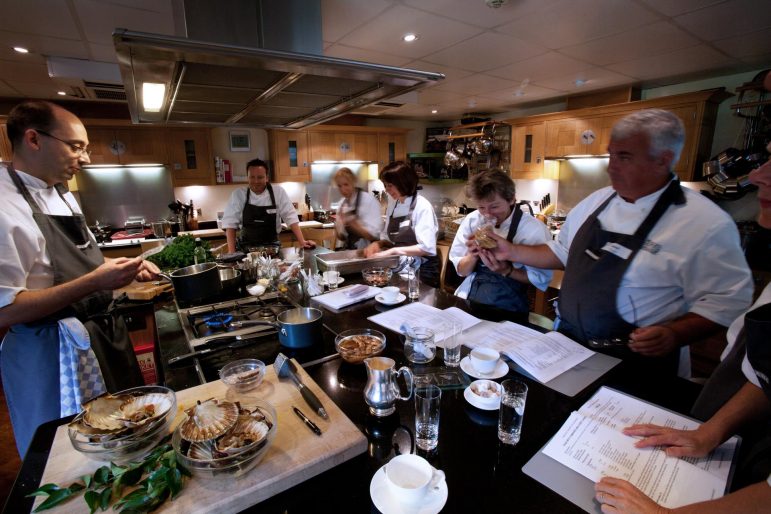It’s a stainless steel beehive of activity in one of the learning kitchens at the Culinard-The Culinary Institute of Virginia College, in Birmingham. About a dozen students squeeze into the living-room-sized kitchen. They’re stirring, chopping, chatting and cleaning. They’re learning first hand what it’s like to be a professional chef.
The Culinard is an example of how things have changed in the world of career colleges. There are still programs in mechanical arts and car repair. But, there are also degrees and certificates in health services management, nursing, information technology and animation game design. Enrollment in two-year-for-profit colleges has risen 78 percent.
“We deal frequently with people who have had prior college experience.”
Jim Tolbert is chair of the Career College Association, a national membership organization representing 14-hundred post-secondary schools.
“For whatever reason, it was not right for them, or for financial reasons, they didn’t complete their time in college, find themselves in careers hat perhaps not what they were looking for, and turned to our schools to find their career that is right for them.
Tolbert says for the most part, career college students are not typically right out of high school. Anita Washburn, who’s studying nursing at Herzing College in Birmingham, says she was accepted in several conventional colleges.
“”But I chose Herzing because the class size was a lot smaller. I have my mother and grandmother, and I have a family, so I had to work and go to school, and be with my family. And, I was able to fit school into my schedule, and that was a big plus because the classes are small and the schedule is real good for people who work and have families.”
Fans of career colleges say they’re focused on a comprehensive, practical education, which makes students marketable the nano second they graduate. But it’s this emphasis on a “hands on” curriculum that concerns some educational experts. They say the education provided by most of these schools is not very broad, and the skills taught could be obsolete in a few short years.
“My concern would be so many of the career colleges hit right what’s needed now.”
Kim Crockard is an independent education consultant in Birmingham.
“So, I think going straight to a two-year institution needs to be researched on what the trends truly are. Is this going to be a simple trend, is it going to be a long-term trend. Restaurant industry, people are going to eat, so that’s an OK one.”
Back at Culinard, chef instructor Dennie Veasey says at least 90% of their graduates receive job offers right out of the gate.
“They have the opportunity to walk into those fine-dining establishments and very early in their career.”
Despite their burgeoning enrollment and the fact they’re accredited by the same regional bodies, career colleges still face an uphill battle gaining respect from traditional four-year institutions. Many colleges and universities still won’t allow students to transfer course credits from career colleges.


